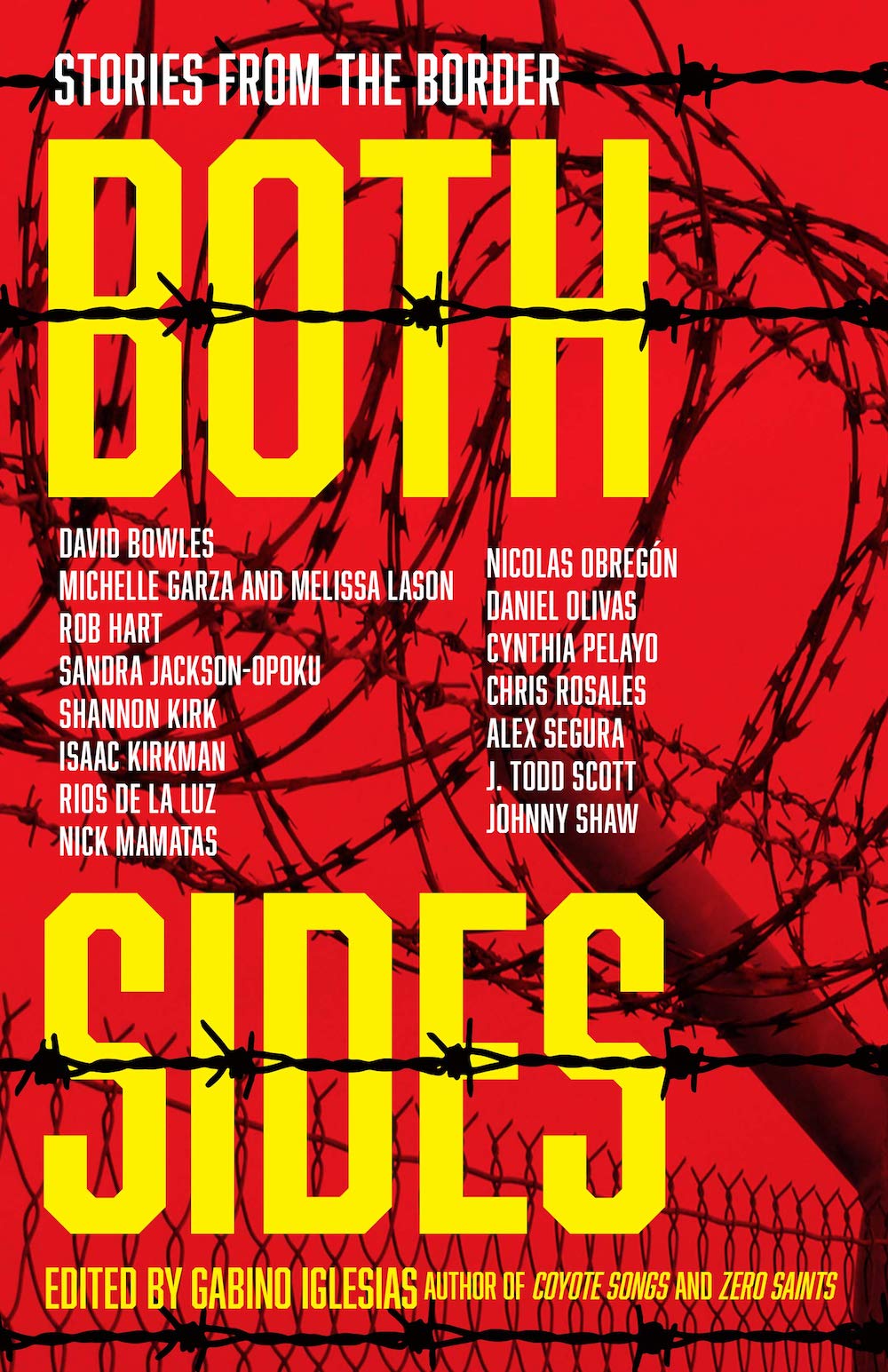This Is About People: Gabino Iglesias on Both Sides
Web Exclusives
The following appears as the introduction to Both Sides: Stories from the Border, a new crime anthology edited by Gabino Iglesias. The volume features fifteen stories about life on the US-Mexico border and is out today from Polis Books.
THIS IS ABOUT PEOPLE
by Gabino Iglesias
My first border was the ocean. It was always there, surrounding me on all sides, dictating the limits of my life. It was an endless blue thing that kept me away from a world I didn’t know. Then I grew up and started realizing how borders are everywhere. I hated all of them.
I grew up and the ocean was still there, blue, eternal, and relentless. Planes helped me break its power over me. Planes shattered an invisible wall and showed me borders were meant to be crossed, to be ignored. I refused to remain landlocked.
Years later I made peace with the ocean and sat before it regularly. I kissed girls, got drunk, bathed in it. I also sold stolen jewelry in front of that ocean because being poor is also a border, a boundary that keeps you within something you want to break out of.
As the years passed, my name became a border, an unpronounceable amalgamation of vowels that many monolinguals struggled with and butchered. My parents hadn’t gone to college, and their history became a border. My country became a border. My lack of education, my age, and the fact that I didn’t speak English became borders. My hatred grew. It became a force, an unstoppable weapon. Borders. Limits. Boundaries. Lines. Confines. Fuck them all. They are there to be demolished, jumped over, overcome.
In 2008 I moved to the United States. I was naïve and believed education was a surefire way to upward social mobility. It wasn’t. Moving to the United States uncovered more borders. My second-class citizenship became a new border I had ignored before. My accent became a border that affected the way others saw me. My socioeconomic status was a border that kept me living in certain places and wearing certain clothes and stealing toilet paper from work to survive. And you know what? I was lucky. I was lucky because I had a blue passport with an eagle on it. Sure, it wasn’t good enough to make me a full citizen or grant me the privilege others enjoyed, but it was good enough to keep me here and not make me fear deportation.
I won’t bore you with the details of my life in this country. What you need to know is this: my doctoral dissertation was done with DREAMers, I spent a year teaching ESL night classes to undocumented workers in Austin, I worked with an immigration lawyer doing translation, and now I teach at a public school in East Austin where there are many undocumented kids and even more undocumented parents. I’m an authority on immigration, and everything you think you know about immigration is wrong.
The US-Mexico border has been militarized and politicized. It has been turned into a talking point. It’s not; instead the border is a humanitarian crisis, an open wound, an interstitial space where idiots work really hard at stopping progress and spend a lot of money and time strangling the American Dream. Well, I believe the most important thing fiction can do is tell the truth, and that truth is crucial right now. The anthology you now hold is a tool that will help do one of the most significant things contemporary American fiction can do: rehumanizing la frontera.
I’ve heard that being too political can hurt your book sales. I don’t care. I care about humanity. I care about people. I care about how Haitians move to the Dominican Republic and how the Dominicans build boats to go to Puerto Rico and how Puerto Ricans leave everything behind and move to Florida or New York because we all want to live better lives. I care about every family crossing our border, about every parent fearing for the safety of children, about every separated family member sending money home, about the tears and the fear and the injustice. I care about the fact that migration is the history of the world and stopping migration is stopping progress. I care about the writers in this anthology because they care about the same things and are willing to write about them from their perspectives: an angry lawyer, someone who worked for the carteles and now does water drops in the dessert, a Boricua struggling with her identity. They are all here. They make this a beautiful, incredibly diverse book that looks at the issue of borders and immigration from a plethora of spaces and enriches the discussion as it illuminates things a lot of people ignore.
Al carajo todas las fronteras.
This anthology is about borders. However, this is a book about people. Why? Because too many folks forget that people are at the core of every immigration debate. Yeah, this isn’t about borders, this is about the people on both sides of—and across—those borders. Bienvenidos a la frontera.
Gabino Iglesias is a writer, professor, and book reviewer living in Austin, Texas. He is the author of Zero Saints and Coyote Songs and the editor of Both Sides: Stories from the Border. You can find him on Twitter @Gabino_Iglesias.
More Web Exclusives



